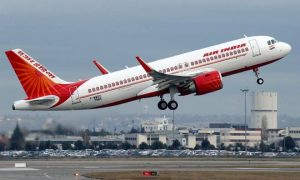Lucknow: The Uttar Pradesh government is in plans to implement the National Council of Educational Research and Training (NCERT) syllabus for all public primary schools from class 1 to 3 in the academic session 2023-24.
A proposal to approve the same has been sent to the cabinet by the basic education department, says School Education Director, Vijay Kiran Anand.
NCERT books have already been introduced for class 9 to 12 students in U.P. Board schools.
“A detailed proposal has been sent to the government. NCERT books will be introduced in government schools in a phased manner. First, we will start with class 1 to 3. Then it will be introduced in class 4 to 5 from session 2024-25 and in the following session, it will be rolled out among students from class 6 to 8,” the official said.
Talking about books, he added, “Since they are already available in the market, the basic education department is only required to take consent for copyright for printing of these books. About 75 lakh students of class 1 to 3 will benefit from NCERT books.”
Arrival of national board delayed by COVID
In 2018, the UP government decided to implement the national board syllabus in a phased manner for classes 1 to 8, through 2021-22. The outbreak of the COVID-19 pandemic delayed the implementation of this scheme.
The government will now implement the syllabus from classes 1 to 3 in the coming session, and then from classes 4 to 8 in the following two years. Prior to that, the basic education department will conduct teacher training, for which the workbook module has been designed.
“Teachers’ training is an important aspect as the NCERT books are a little different from the SCERT books,” the official said. The decision of switching to NCERT books was taken as most of the competitive exams after class 12 are based on NCERT pattern.
Since students from class 9 to 12 are already being taught from the national board books, introduction of the same in younger classrooms will help students adapt better.
Presently, there are 1.9 crore (19 million) students studying in 1.32 lakh (1,32,000) government primary and upper primary schools across the state.





































